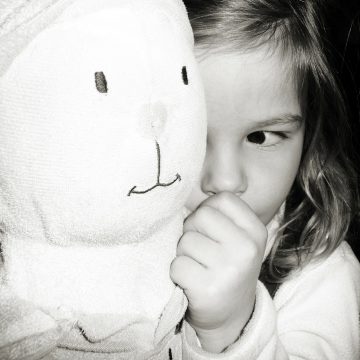We usually advise keeping family dinner conversations positive, so that the table is a warm and welcoming place for all. However, sometimes there are sad, scary or upsetting events that demand our attention and connection. In those cases, you may choose to use the dinner table as a safe and supportive space for asking and answering tough questions.
Events such as the recent mass shooting in Orlando can easily overtake our consciousness and become overwhelming, especially to children and teens. It’s important for families to carefully and sensitively address such occurrences and gather strength and comfort from one another. Whether you choose to discuss tragedy with your family at the dinner table or at some other time and place that feels comfortable for you, we encourage you to use these ideas and resources to guide your conversation.
For young children (ages 3-6)

The Fred Rogers Company has excellent tips for parents of young children. In addition to following these guidelines, you may also ask questions such as these to help increase your child’s sense of security and belonging:
- What are some things we do together that make you feel loved?
- Who are some people in our community who help others?
- What are some things we can do to help another person?
- Do you have a special toy, book or object that helps you feel safe? Tell me a story about your special item.
For elementary-aged children (ages 7-11)
The American Psychological Association has many good resources that can be helpful in discussing tragic events with grade-school children. In addition, you may try asking some of these questions to help your child process events in a more positive way:
- Have you heard about any people who acted as helpers during this event? What did they do?
- Do you think it takes a special kind of person to be a helper, or can anyone step up and lend a hand in a tough situation?
- Where in the world do you feel most safe? Why do you feel safe there? Tell me about it.
- What are some things we can do that help you to feel calm and secure?
For older children (ages 12-17)
The American Psychological Association has tips to help parents stay alert to signs of stress in teens. You may also ask more general questions to help open up a dialogue with your older child:
- What makes someone a hero? Can you think of any real-life heroes?
- What’s one world problem you’d like to see solved in your lifetime?
- Is there any cause that you feel passionate about? What could you do to further that mission?
- “Darkness cannot drive out darkness; only light can do that. Hate cannot drive out hate; only love can do that.” Have you seen any examples in real life that embody this quote by Dr. Martin Luther King, Jr.?
In addition to talking with your kids and helping them to process their thoughts and feelings in times of tragedy, it’s vitally important to be aware of your own feelings and take good care of yourself, physically and emotionally. The CDC has a brief guide on identifying and managing your own emotional responses after a tragic event that may be helpful, and Upworthy has a list of ways to feel less helpless in the wake of tragedy, provided by a trained therapist. Remember the old air travel adage about putting on your oxygen mask before helping your child? It applies to managing difficult events as well. Also, don’t be afraid to express your own sadness and confusion to your child. Saying “I feel sad about this, too” or “I don’t know why” can be powerful statements that help kids understand that their feelings are real and safe to express.
Further Resources
“Talking to Children About Tragedies and Other News Events” from HealthyChildren.org
Disasters and Terrorism Help Center from American Psychiatric Association
“Talking to Your Kids About Natural Disasters, War and Violence” from Scholastic Parents